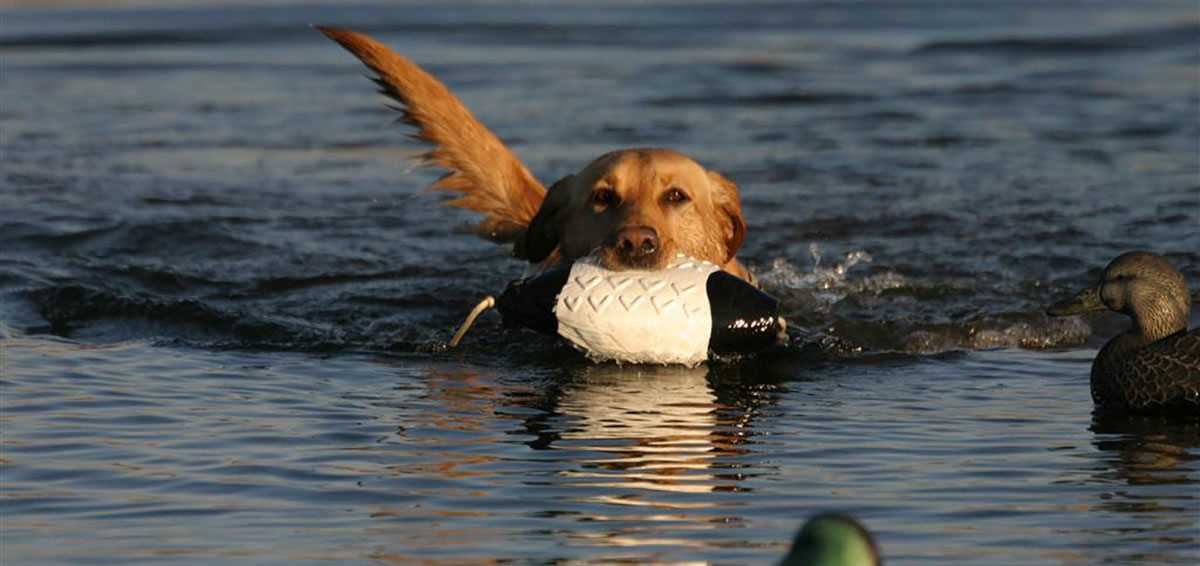Fetching Divers on Big Water
Have your retriever prepared for the long-retrieves diving ducks tend to offer
Have your retriever prepared for the long-retrieves diving ducks tend to offer

Diving ducks are incredibly tough birds that often require a finishing shot after they've hit the water. But follow-up shots aren't an option if downed birds fall or dive out of range. This is when a retriever is an invaluable asset.
Lyle Steinman, a professional trainer who operates Castile Creek Kennels in Stewartsville, Missouri, says it's essential for hunters and retrievers to work together while pursuing crippled diving ducks in open water, especially when a dog has to swim a great distance to reach a bird. "You have to help your dog out," he says. "Diving birds require more teamwork than any other type of retrieve."
Although having a dog with a good nose is an asset on any retrieve, Steinman believes sight-marking is more important than scenting in open-water retrieving. "A dog is probably going to have a hard time winding a diving duck on open water, so I want him to sight-mark it," he says.
While not technically complicated, long open-water retrieves are physically demanding. In many cases, a dog must swim hundreds of yards to get the bird and then return to the boat or blind. Consequently, conditioning is vital in big-water retrieving.
Steinman likes to train his dogs in warm (but not hot) weather, and he conducts the training process in graduated steps. He begins by having the dog perform extra-long retrieves on land before moving to the water. "We just try to build momentum," Steinman says. "We start with 100- or 200-yard retrieves in the water and then gradually work up to 300-, 400-, and 500-yard swims. You have to be patient."
Steinman says it's also wise to help dogs become accustomed to retrieving from a boat during the off-season. "Teach the dog be steady in the boat and to jump out and climb in," Steinman says. "But there's nothing wrong with helping your dog back in if it's having trouble."
Many big-water hunters fish from their boats during the summer as well, and Steinman advises taking the dog along on these warm-water outings. Throwing a couple of bumpers from the boat in short training and swimming sessions is also a great way to pass the time when the fish aren't biting.
Ducks Unlimited uses cookies to enhance your browsing experience, optimize site functionality, analyze traffic, and deliver personalized advertising through third parties. By continuing to use this site, you agree to our use of cookies. View Privacy Policy